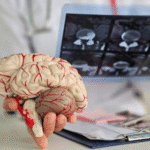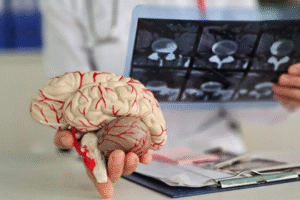Cluster headaches can feel like a relentless storm, disrupting daily life with intense pain. Pain management specialists play a crucial role in taming this storm. They bring a deep understanding of the condition, offering tailored treatments. From medications to innovative procedures, their approach aims to reduce pain and improve quality of life. In places like regenerative medicine woodstock, specialists explore every avenue to provide relief.
Understanding Cluster Headaches
Cluster headaches are among the most painful types of headaches. They occur in cyclical patterns or clusters, which is why they get their name. Each episode can last weeks or even months, followed by periods of remission. These headaches tend to occur at the same time each year, creating a predictable yet challenging pattern.
The Role of Pain Management Specialists
Pain management specialists focus on assessing and treating pain. They employ a comprehensive approach to address cluster headaches. This may include:
- Medication management
- Non-invasive therapies
- Advanced interventional procedures
These specialists work closely with neurologists and other healthcare providers to deliver a holistic treatment plan. Their expertise helps in reducing the frequency and severity of headache episodes.
Medication Options
Medications form the cornerstone of cluster headache management. Specialists may prescribe the following:
- Triptans: Often used through injection or nasal spray for quick relief.
- Calcium channel blockers: Preventive medications that help reduce the number of headaches.
- Corticosteroids: Used for short-term prevention during cluster periods.
Effectiveness varies from person to person, so specialists tailor the medication plan to suit individual needs.
Non-invasive Therapies
In conjunction with medication, non-invasive therapies can provide additional relief. These include:
- Oxygen therapy: Inhaling pure oxygen can help relieve headache intensity.
- Nerve stimulation: Devices that stimulate specific nerves can provide pain relief.
These options are safe and can be used alongside traditional treatments to enhance their effectiveness.
Advanced Interventional Procedures
In cases where standard treatments do not provide adequate relief, specialists may consider advanced interventional procedures. These include:
- Nerve blocks: Injections that target specific nerves to reduce pain.
- Radiofrequency ablation: A procedure that uses heat to disable pain-causing nerves.
These techniques require skilled specialists but can offer significant relief for those with severe or chronic cluster headaches.
Comparing Treatment Options
| Treatment Option | Pros | Cons |
| Medications | Quick relief, customizable | Side effects, varied effectiveness |
| Oxygen Therapy | Non-invasive, effective for many | Requires equipment, not always available |
| Nerve Blocks | Targets specific pain areas | Invasive, requires medical expertise |
The Future of Pain Management in Cluster Headaches
Research continues to advance in the field of pain management for cluster headaches. New treatments are on the horizon, offering hope for those affected. Innovations such as biologics and gene therapy are being explored. These advances aim to provide more effective and lasting relief.
Organizations like the National Institute of Neurological Disorders and Stroke are pivotal in researching and funding studies that explore these new avenues. Staying informed about these developments can help patients and providers make better treatment choices.
Conclusion
Pain management specialists are essential in the battle against cluster headaches. Their expertise in medications, non-invasive therapies, and advanced procedures provides a lifeline for many. By working collaboratively with patients and other healthcare providers, they offer hope and relief. The future of pain management is promising, with ongoing research paving the way for new treatments. For those facing the storm of cluster headaches, these specialists bring light to the darkness.














